#healthy living tip
Explore tagged Tumblr posts
Text
⭐Vitamin Cheat Sheet⭐
Vitamin A: Vision, immune system, skin health.
Vitamin B1 (Thiamine): Energy metabolism, nerve function.
Vitamin B2 (Riboflavin): Energy production, skin health.
Vitamin B3 (Niacin): Cellular energy production, skin health.
Vitamin B5 (Pantothenic Acid): Metabolism, hormone production.
Vitamin B6: Brain function, mood regulation.
Vitamin B7 (Biotin): Healthy hair, skin, and nails.
Vitamin B9 (Folate): Cell division, DNA synthesis.
Vitamin B12: Nervous system, red blood cells.
Vitamin C: Immune system, collagen synthesis.
Vitamin D: Bone health, immune function.
Vitamin E: Antioxidant, skin health.
Vitamin K: Blood clotting, bone health.
Calcium: Bone and teeth health, muscle function.
Iron: Oxygen transport, energy production.
Magnesium: Nerve function, muscle relaxation.
Zinc: Immune system, wound healing.
Potassium: Fluid balance, nerve function.
Iodine: Thyroid function, metabolism.
Selenium: Antioxidant, thyroid health.
#vitamins#health and wellness#healthy living#health tips#healthyhabits#healthy lifestyle#nutrition#supplements#wellness#wellbeing#health is wealth#self care#food#healthy diet#skincare#lifestyle#green juice girl#clean girl aesthetic#fitness
39K notes
·
View notes
Text
these are the habits you have to give up before the year is out:
worrying about people and things you can’t control
negative conversations with others
obsessing about what others think
lying for others
expect others to do what you want them to do and get angry if they don't do it
creating expectations on others
gossiping
making excuses for not taking care of your responsibilities
lying to yourself
putting your needs lasts
giving priority to other people's opinions rather than your own
letting the negative opinions of others affect you
limiting yourself
comparing themselves to others and putting them on a pedestal
giving prominence to people who do not deserve it
set boundaries with others but not with yourself
spending too much time on social media
habits you need to implement:
create a daily routine that you feel comfortable with and suits you
calming your mind a few times a day
positive affirmations and healthy thoughts
complimenting others and congratulating their success
letting go of things you can’t control
ending toxic relationships
more time outside
making yourself and your health a priority
self compassion and self forgiveness
taking responsibilities
more self care
beginning with a motivation each day
do what you need for yourself
starting something new (activity, hobby, habit)
not to depend on others and to learn to do things you want to do on your own
focus on the good things and not on the things you don't like
exercise and eat healthy for the sake of your body and not to fit into a beauty canon
getting out of your comfort zone
focus on building healthy relationships rather than being guided by false expectations of how relationships should be
be true to yourself and your values
not to sell or denigrate you for money or lavish gifts
#that girl#green juice girl#self love#self esteem#levelup#self improvement#self worth#leveling up#pink pilates princess#level up journey#becoming that girl#becoming her#best version of yourself#live your best life#live your own life#live your dreams#healthy living#manifest#manifestation#high value mindset#high maintenance#high value woman#habits#self healing#healthy lifestyle#healthy tips#that girl aesthetic#mindset
3K notes
·
View notes
Text
The Sun ☀️


Listen 👇
They are helping you to remain sick so you're paying into their system 🤔
#pay attention#educate yourselves#educate yourself#knowledge is power#reeducate yourself#reeducate yourselves#think about it#think for yourselves#think for yourself#do your homework#do your research#do your own research#ask yourself questions#question everything#sun#for your health#health tips#stay healthy#healthy living#natural remedies
910 notes
·
View notes
Text


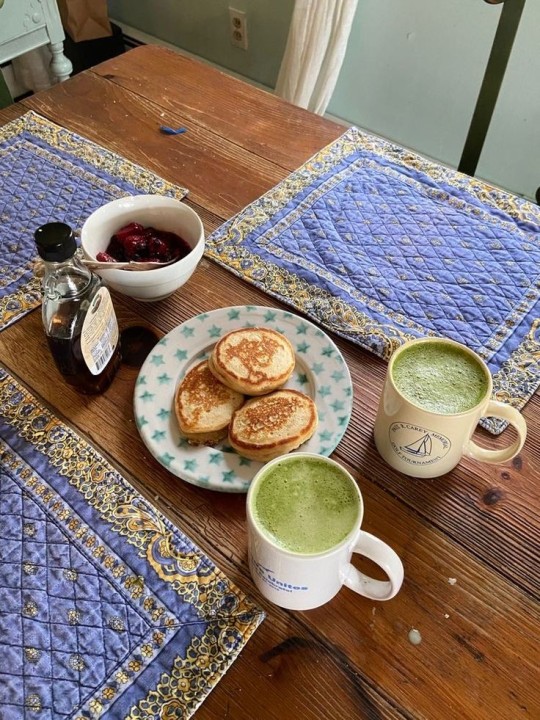



"You can really feel the nature, right?
What a glorious feeling..."
[photos from Pinterest]
#that girl#it girl#clean girl#hyper feminine#becoming that girl#glow up tips#healthy girl#pink pilates girl#this is what makes us girls#weight loss#divine feminine#divine femininity#femininity#farm girl#this is a girlblog#girlblog aesthetic#girlblogging#clean girl moodboard#clean girl era#clean girl aesthetic#self care aesthetic#self care#wellness girl#wellness and health#wellness blog#health and wellness#wellnessjourney#wellbeing#intentional living#that girl tips
466 notes
·
View notes
Text
how to do a mental diet

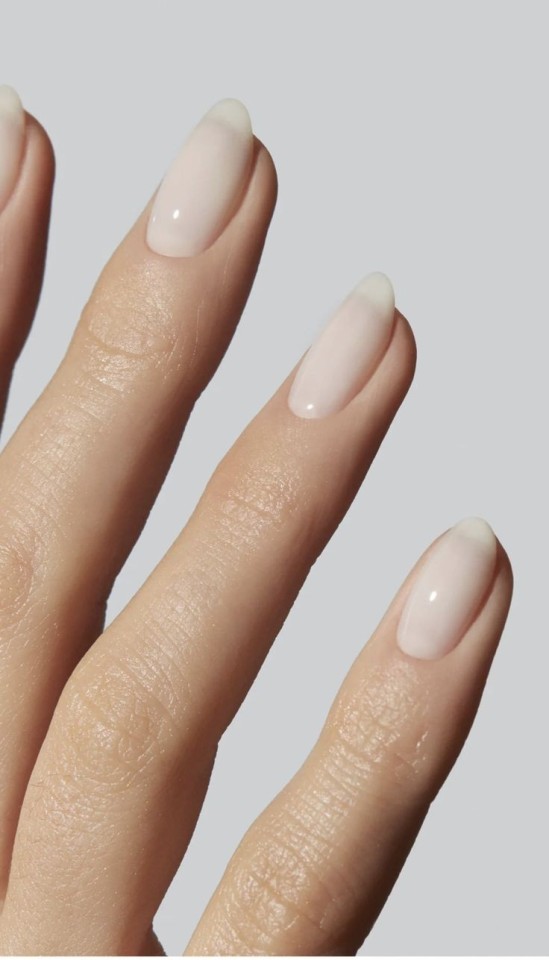

write down your negative thoughts throughout the day, aiming for the date and time and replacing them with good affs
visualize! make a visionboard
have time to develop creativity and fun to keep the mood up
keep your brain active, study something you like, expand your knowledge
follow people who inspire you
watch positive content
by Nancy Loaiza in youtube :)
#self care#pink pilates princess#it girl#wonyoungism#wellness and health#that girl aesthetic#wellness blog#girl things#self love#it girl energy#pinterest girl#girl blogger#vanilla girl#wellness girl#wellnessjourney#mental wellness#beauty and wellness#healthy living#healthy habits#health and fitness#health#health and wellness#clean girl#clean girl aesthetic#dream girl tips#health tips#weight loss tips
722 notes
·
View notes
Text
The 13 Best Foods For Healthy Skin
Your skin is not only the body's largest organ but also a reflection of your overall health. Maintaining healthy and radiant skin requires more than just external skincare products; it begins with the nutrients you provide your body from the inside. A well-balanced diet rich in essential vitamins, minerals, and antioxidants can do wonders for your skin. In this article, we'll explore the 13 best foods for achieving and maintaining healthy, glowing skin.
1. Salmon:
Salmon is a fatty fish that's high in omega-3 fatty acids. These healthy fats help keep your skin moisturized and supple, reducing the appearance of fine lines and wrinkles. Omega-3s also have anti-inflammatory properties that can soothe skin conditions like eczema and psoriasis.
2. Avocado:
Avocados are packed with healthy fats, vitamins E and C, and antioxidants. These nutrients help keep your skin hydrated, protect it from UV damage, and promote collagen production, which is essential for skin elasticity.
3. Sweet Potatoes:
Sweet potatoes are rich in beta-carotene, a powerful antioxidant that can give your skin a healthy glow by protecting it from sun damage and preventing premature aging.
4. Berries:
Berries like blueberries, strawberries, and raspberries are loaded with antioxidants, particularly vitamin C. Antioxidants help combat free radicals, reducing skin cell damage and promoting a more youthful appearance.
5. Walnuts:
Walnuts are an excellent source of omega-3 fatty acids and vitamin E, which help maintain the skin's moisture and protect it from oxidative stress.
6. Spinach:
Spinach is rich in vitamin A, which is essential for skin health. It helps repair skin tissues, prevent acne, and maintain a healthy complexion.
7. Green Tea:
Green tea contains polyphenols and antioxidants that protect the skin from UV radiation and reduce the risk of skin cancer. Drinking green tea regularly can also help combat inflammation and keep your skin looking fresh.
8. Tomatoes:
Tomatoes are a great source of lycopene, an antioxidant that can reduce the risk of sunburn and skin aging. It also promotes collagen production and skin elasticity.
9. Dark Chocolate:
High-quality dark chocolate (70% cocoa or higher) is rich in antioxidants, specifically flavonols, which can improve skin texture, hydration, and blood flow, giving your skin a healthy glow.
10. Almonds:
Almonds are rich in vitamin E, a powerful antioxidant that helps protect your skin from harmful UV rays and environmental damage.
11. Yogurt:
Yogurt is packed with probiotics, which can promote a healthy gut. A balanced gut microbiome can lead to clearer skin by reducing inflammation and preventing acne.
12. Carrots:
Carrots are another great source of beta-carotene, which can help reduce skin dryness and promote a more youthful appearance.
13. Oats:
Oats are a good source of complex carbohydrates and fiber. They can help stabilize blood sugar levels, reducing the risk of acne and promoting clear skin.
While these foods can be a valuable addition to your diet for healthier skin, remember that no single food can work miracles. A well-rounded diet that includes a variety of nutrient-rich foods, along with proper hydration, is essential for achieving and maintaining radiant skin. Additionally, don't forget to protect your skin from excessive sun exposure, get enough sleep, and maintain a consistent skincare routine for the best results. Healthy, glowing skin is the result of both internal and external care, so make these foods a part of your daily routine and watch your skin thrive.

#skincare#skincare tips#beauty tips#glowing skin#skincare routine#antiaging#natural skin care products#acne#skin care#skin treatment#health tips#health#healingjourney#healthy skin#healthy#nutrition#healthy living#healthy eating#healthyfood
637 notes
·
View notes
Text
My Fasting Experience: Low Blood Sugar Moments and How I Handled Them
Fasting can be a tricky journey. At times, it feels like walking a tightrope. It’s not just about skipping meals; it’s about tuning into what your body is saying. I started my fasting experience hoping for clarity and health. Little did I know, I'd face some surprising low blood sugar moments that shook me up! Here’s how I navigated through the bumps and found my footing.
Understanding the Ups and Downs of Fasting
Fasting often feels like an adventure. You think you’re on solid ground, but then—bam! Your blood sugar drops. Moments like these can feel alarming. Suddenly, you're weak, dizzy, or even lightheaded. It left me wondering: How did I get here?
When you fast, your body is running on empty fuel. It’s like trying to drive a car on fumes. Eventually, you hit a wall. This happened to me on several occasions. I realized that understanding my body’s signals was key to managing those low points.
Recognizing the Signs of Low Blood Sugar
Low blood sugar can sneak up on you. At first, it might just feel like a little fatigue. The next thing you know, you're staring at your feet, wishing the ground would steady itself. I started recognizing my signs: the shaky hands, the foggy brain, and that annoying little sweat on my forehead.
Each of these signs was a warning bell. It’s like my body was sending me a text message saying, "Hey, pay attention!" The trick was learning to listen and react before things got serious.
Quick Fixes to Raise Blood Sugar Levels
When low blood sugar hit, I needed solutions fast. I learned to keep a stash of easy snacks nearby. Something as simple as a piece of fruit or a bite of granola could make a world of difference. It was like pulling a parachute cord when free-falling. Instant relief!
I kept small packets of honey in my bag. They’re tasty, easy to carry, and bring up my sugar levels quickly. It’s amazing how a little sweetness can turn your day around!
Planning My Meals to Avoid Low Moments
Planning became crucial in my fasting routine. I started mapping out my meals, making sure I had enough nutrients to fuel my body. Eating wholesome meals before starting a fast was like filling my gas tank to full before a long trip. I wanted to avoid running out of fuel halfway.
I learned the importance of including proteins, fats, and fiber. These kept me feeling full longer and helped maintain steady blood sugar levels. It’s all about building a foundation that can handle the ups and downs.
Finding Balance Through Fasting
Fasting is all about balance. There were days when I hit those low points, but they were also days filled with learning. Each experience taught me more about my body and its signals.
It’s not just about the act of fasting itself; it’s about how to balance your body’s needs with your goals. I found that adjusting my approach and listening closely helped me handle those low blood sugar moments better.
Conclusion: Embracing the Journey
My fasting experience was filled with highs and lows. The low blood sugar moments were unexpected challenges, but also valuable lessons. I learned to listen, prepare, and react. Instead of fearing these moments, I embraced them as part of the journey.
So, if you’re thinking about fasting, keep in mind that it’s a personal adventure. You may face your own struggles, but with a little preparation and awareness, you'll find your way. Fasting isn’t just about food—it's about understanding your body and embracing the experience!
#diabetes#diabetescommunity#gestational diabetes#health and wellness#healthcare#type 1 diabetes#type 2 diabetes#wellnessjourney#north carolina#usa#mens health#mens health and fitness#health and fitness#health & fitness#health fitness#health fitness food#health tips#health care#nutrition#health and fitness tips#benefits#healthy living#wellness#healthylifestyle#healthy eating#diabetescare#diabetic#health#high blood sugar#low blood sugar
66 notes
·
View notes
Text
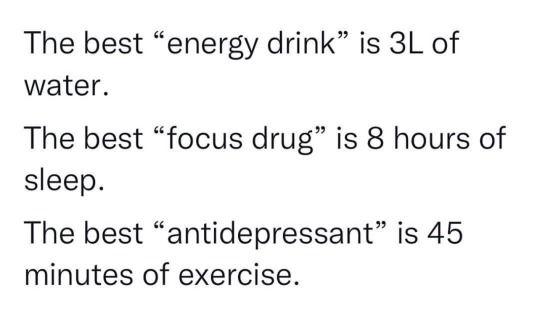
#weight loss journey#fitblr#tumblr#healthlylifestyle#healthy living#healthy hacks#healthy habits#weight loss#weight loss tips#be consistent#consistencyiskey#trust the process#health & fitness#health journey#lose weight tips
1K notes
·
View notes
Text
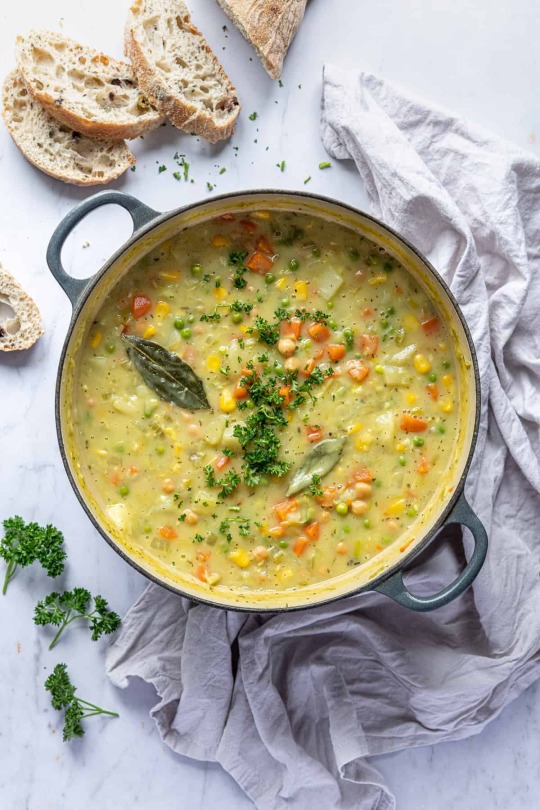
Creamy Vegetable Chickpea Soup (Vegan)
#domesticgothess#soup#stew#winter#savoury#lunch#dinner#vegetable soup#chickpea#chickpeas#recipe#recipes#vegan#vegetarian#food#carrot#carrots#corn#corns#peas#glutenfree#gluten free#healthy eating#healthyfood#healthy diet#health tips#healthy living#health and wellness
71 notes
·
View notes
Text
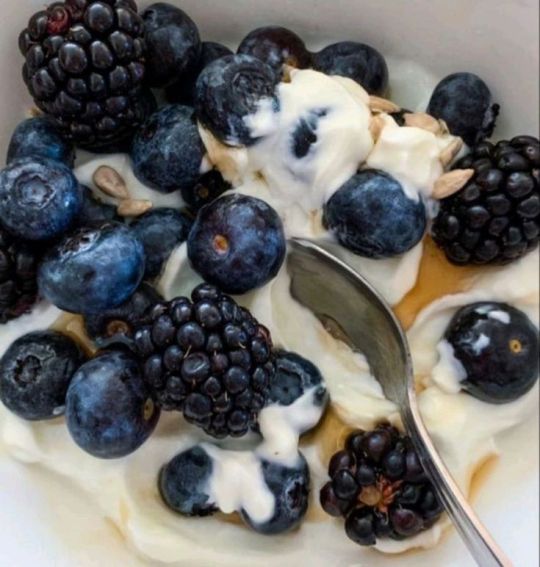
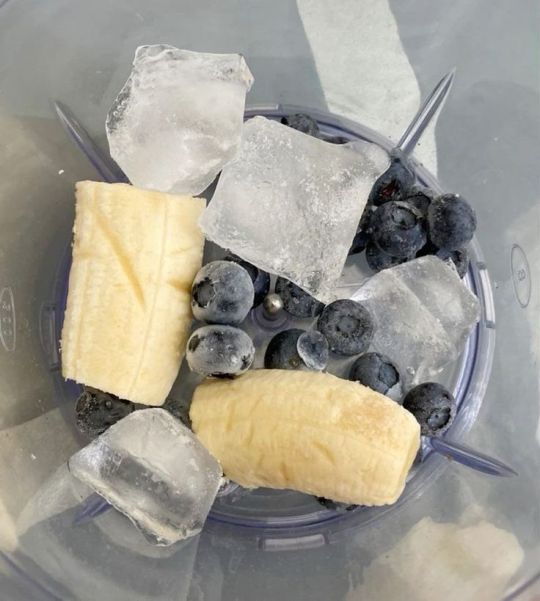
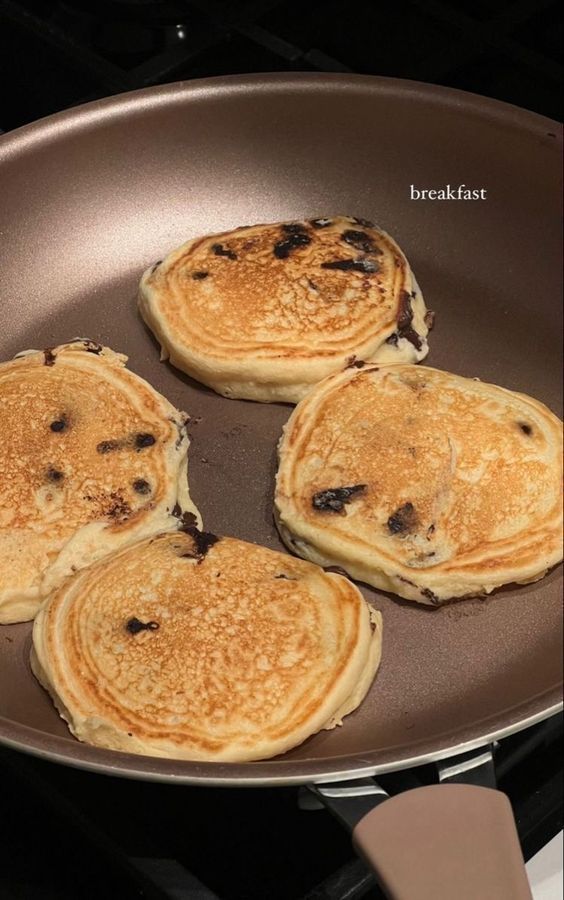
the effect of what (and how) you eat
okay, this is a big topic. and so this is a long post. i'm going to be going over the effect of what you eat and why it's important to think about what foods you are consuming. don't worry! i do my research-- at the end of the post will be a few resources, and i'll show where i've gotten my information.
lots of dietary advice is available over the internet, but often the people absorbing the information do not understand the why. knowing where your information is coming from,, and not believing everything you read online is key to actually maintaining a good, healthy diet.
before you read: TRIGGER WARNING THERE IS MENTION OF EATING DISORDERS,,
let's start with this: like everything in this age, food is a double-edged sword. overconsumption and underconsumption can both kill you. what you eat; how you eat--it can help or hinder whatever your goals may be.
here's the effect/s: the connection between diet and mental health is profound. while we’ve long understood that diet plays a crucial role in overall health, emerging research in the field of nutritional psychiatry sheds light on how what we eat directly impacts our emotional well-being and mental state.
the brain-gut connection: the gut is closely linked to the brain. trillions of living microbes in our gut have essential functions, including synthesizing neurotransmitters. these neurotransmitters send chemical messages to the brain, regulating sleep, pain, appetite, mood, and emotions.
to improve your gut health, here's what you can do:
by eating a varied diet that includes fruits, vegetables, whole grains, nuts and seeds, essential nutrients are provided which feeds the beneficial bacteria in the gut. high fibre foods promote gut health by supporting good bacteria.
fermented foods, such as yogurt, kefir, sauerkraut, kimchi, and miso are rich in probiotics—live beneficial bacteria that boost gut health. kombucha (a fermented tea) is another option.
avoiding reducing processed foods can reduce the diversity of good bacteria in your gut. when i say processed foods, i'm referring to ultra-processed foods, for example, fried foods and frozen meals. they may be easy and cheap, but they include preservatives, artificial colouring, chemical flavouring and texturing agents. all of which our bodies are not made to consume. it's ignorant to tell you to avoid processed foods at all costs. that's not realistic, and a horrible mindset. instead, you should manage your intake. enjoy treats every now and then and don't punish yourself for it.
hydration is key to a healthy gut. water supports digestion and nutrient absorption.
stress management, eating well and exercise can also help your gut microbiome's health.
by having a healthy gut microbiome, you are helping your body to have lower chronic inflammation, have regular bowel movements and more effectively absorb nutrients. therefore, you will have a stronger immune system, have clearer skin and support your digestion and metabolism.
why eating protein matters: proteins are made of amino acids, which serve as the fundamental building blocks for various structures in our bodies. these amino acids are essential for forming enzymes, hormones, tissues, and DNA. protein is vital in maintaining and building muscle mass. when activities like strength training and physical exercise are engaged in, protein helps build and repair the muscles.
hemoglobin, a protein in our red blood cells, transports oxygen from our lungs to other tissues. without adequate protein, oxygen delivery would be compromised. antibodies, which defend against infections, are made of proteins. a well-functioning immune system relies on sufficient protein intake. collagen, a protein, maintains the integrity of our skin, hair, and nails. adequate protein supports healthy skin elasticity and wound healing.
the recommended dietary intake for protein relies on factors such as age, weight, height, gender, activity and overall health. remember that individual needs can vary, so consulting with a healthcare provider or registered dietitian is advisable to determine your specific protein requirements.
many diets exist that cut out entire macronutrients (keto for example) but that is not the way. each macronutrient has great importance in helping the body function.
carbohydrates are the body's (including the brain) preferred energy source. they enable muscle contraction during exercise and even at rest. carbs maintain body temperature, support heart function, and aid digestion.
the keto diet comes from the belief that when carbohydrates are not providing energy (are not being consumed), the body will use reserved energy stored in lipids (fat). while this is true, this diet is not maintainable-- it throws the body out of whack, storing more energy to maintain homeostasis.
fats provide energy and are essential for hormone production. they contribute to cell growth, brain health and vitamin absorption.
our brain is composed of ~60% fat. fats are essential for neurotransmitter production, affecting mood, cognition, and hormonal signalling. cholesterol, often associated with heart health, is a precursor for steroid hormones (testosterone, estrogen, progesterone). without adequate cholesterol, our body cannot produce these essential hormones.
effects of diet on mood: firstly, going long periods without eating can cause a drop in blood sugar levels, leading to tiredness and irritability. secondly, consuming excessive amounts of food can make you feel tired and lethargic.
choosing the right carbohydrates can help maintain blood sugar levels. our brain primarily runs on glucose (obtained from carbohydrate-rich foods). you can opt for slow-release carbohydrates to maintain steady energy levels. slow-release carbohydrates (a.k.a low GI food) provide a more sustained and gradual release of energy compared to other carbohydrates. examples include fruits, vegetables, whole grains (grainy bread, brown rice, oats) and sweet potatoes. high GI foods rapidly spike blood sugar levels due to their quick digestion and absorption.
going too long without eating can lead to low blood sugar levels, resulting in irritability and fatigue. overeating to discomfort can also leave you feeling tired and lethargic. consistent, moderate-sized meals help maintain stable blood sugar levels and promote an even mood.
i know, overeating is an issue that one cannot simply 'turn off'. it's important to know the psychology, and if you struggle with it--please talk to a health professional.
here is what i can tell you about overeating:
overeating is typically a learned behaviour and habit. certain foods are associated with pleasure and reward. when enticing food is encountered, we engage in eating behaviour and immediately experience pleasure. this reinforces the habit, making it challenging to change.
overeating may be serving as a coping mechanism for emotions. when feelings of sadness, disappointment, frustration, or even joy arise, someone may turn to food. emotional eating provides temporary relief, reinforcing the behaviour.
the first delicious bite triggers pleasure, satiates our appetite, and improves our emotional state. our memory associates this reward process with eating, leading us to continually seek that pleasure. this is due to immediate reward.
people with eating disorders may disregard their health, body, body image and lifestyle goals. they use food as a way to punish themselves and gain control over their life. restrictive eating disorders can lead to 'binging behaviour'. bingeing serves as a way to numb emotions. anxiety, stress, and depression can trigger binge behaviours. consuming certain foods or substances (like junk food or alcohol) releases dopamine, the “feel-good” neurotransmitter. this chemical rush can lead to physical addiction, reinforcing bingeing. a culture (unfortunately which is abundant in the world today) that emphasizes consumption as a measure of worth can contribute to bingeing. messages about thinness, drinking, and material possessions can drive these behaviours.
i hate that i am having to say this but alcoholism is bad. and caffeine addiction is bad. in no way is harming your health aesthetic or 'a vibe'.
limiting caffeine and alcohol can also improve mood. again, i'd like to stress that there is never going to be one perfect diet, and allowing yourself to enjoy whatever food you like is perfectly fine- as long as you are doing so in moderation.
everything is a balance.
resources/further reading, to end: Fat Requirements For Optimal Hormonal Health - Clean HealthHow Dietary Fat Benefits Hormones - Women's International Pharmacy (womensinternational.com) The truth about fats: the good, the bad, and the in-between - Harvard HealthDietary fats | healthdirectMacronutrients: Definition, importance, and food sources (medicalnewstoday.com)Know Your Macros-Why Macronutrients Are Key to Healthy Eating | Cedars-SinaiWhy the Proper Balance of Macronutrients is Vital for Good Health - Functional Diagnostic Nutrition What Is Protein & Why Do You Need It? (eatingwell.com)Protein: Why Your Body Needs It (webmd.com)Protein | The Nutrition Source | Harvard T.H. Chan School of Public HealthBinge-Eating Disorder (Compulsive Overeating) | Psychology Today AustraliaThe Psychology Behind Binge-Watching | PsychregBingeing: Why It Happens and What You Can Do About It (greatist.com) Understanding Overeating: The Psychology Behind It - Listen-HardWhy stress causes people to overeat - Harvard HealthThe Truth About Overeating | Psychology TodaySlow-release carbs list (medicalnewstoday.com)Why understanding carbs (and how to count them) matters | Diabetes UK Food and your mood - Better Health ChannelHow food can affect your mood | Nutrition AustraliaStress-related stomach pain: When to see a doctor - UChicago MedicineWhat Is Gut Health? A Comprehensive Guide to Digestive Wellness | U.S. News (usnews.com)Why Gut Health Matters More Than You Think | Well.Org Probiotics: What They Are, Benefits & Side Effects (clevelandclinic.org)Probiotics: What You Need To Know | NCCIH (nih.gov)What should I eat for a healthy gut? - BBC FoodLet’s Eat: How Diet Influences the Brain (brainfacts.org)
i know the fact that the resources are one big block may be annoying, but i don't have the commitment to in text reference lmao. hours of research and writing for a blog post, yes, but in text referencing is just too far.
i hope you learnt something
❤️joanne
#elonomh#elonomhblog#student#student life#academia#chaotic academia#productivity#study blog#that girl#becoming that girl#sports science#anatomy#health science#health and wellness#healthy life#healthy lifestyle#wellness and health#mental health#health & fitness#healthylifestyle#health tips#wellness aesthetic#wellness girl#wellness moodboard#wellness#wellbeing#healthy living#vitamins
116 notes
·
View notes
Text
Hormone balancing juice:
• Pomegranate: Rich in antioxidants, supports estrogen balance & heart health
• Beetroot: Boosts circulation & helps detox the liver, key for hormone regulation
• Carrots: Supports the liver in flushing out excess estrogen & promotes healthy skin
• Orange: Packed with vitamin C, helps regulate cortisol & improves overall energy
• Ginger: Reduces inflammation & aids digestion, which is crucial for balanced hormones
Additional ingredients you can add:
• Turmeric: Anti inflammatory & supports liver detox, helping regulate hormones
• Apple: Adds natural sweetness, fiber & supports liver health
• Lemon: Boosts digestion & further helps with liver detox, supporting hormone balance
• Flaxseeds: Rich in omega 3s which help regulate estrogen levels
• Cucumber: Hydrating & soothing, helps flush toxins and balance hormones
• Spinach or Kale: Provides essential nutrients like magnesium, which supports hormone regulation & reduces stress


#health and wellness#healthy lifestyle#healthy living#health tips#health#wellness#wellnessjourney#beauty and wellness#health and beauty#women health#health products#healthylifestyle#healthyhabits#healthyliving#healthyfood#healthy diet#healthyskin#healthy girl#hormonalhealth#hormonal balance
878 notes
·
View notes
Text
how you can use social media in a healthy way
set your intention:
what use do you want to make of social media?
which apps do you want to keep using and which not (or reduce their consumption)?
how much time are you spending on it? how much do you want to spend on it?
establishes limits of use:
you can activate or deactivate certain applications when you are no longer using them so that they do not distract you or add a time limit depending on how much time or how many days a week you want to use the app.
how to set the time of use?:
ios:
settings > usage time > limit app usage > add limit
you can also limit apps only in focus, work, do not disturb or whatever mode you have set.
settings > focus > the category in which you want to activate it > focus filters
android:
settings > well-being and parental controls > set time for your apps
pros and cons:
make a list of where social media is good for you and where it is bad for you. anything that is hurting you stop watching or following.
value your real time:
not having social media or having control over it brings you more in your life and personal growth. for example, how many of us have woken up and the first thing we have done was to look at instagram or another social network and that has made us lose time of our morning? instead you can do a short meditation or breathing to start the day off right, it also reduces stress and anxiety.
just think about how much you spend a week being stuck in social media and imagine what activities you could develop in that time.
other tips:
look for an activity you would like to try
socialize more with your friends
keep your cell phone away from you or in a “do not disturb” or “concentration” mode when you are engaged in an activity
spend more time in nature
uninstall or deactivate those apps that no longer benefit you, try it for a while.
don't take anything personally from what people may share there.
conclusions:
when you have a routine, things to do, you don't pay as much attention to being online all the time, so it's not such a hard task. i'm not saying stop using your phone but i'm writing this post for all those people who spend all day scrolling or really spend a lot of time watching tik tok or instagram, that's not healthy in the end.
of course you can still use social media but with knowledge and in a way that does not harm you or does not compromise your time too much. the most important thing is not to be glued to a phone watching what others do but enjoy your life.
#that girl#green juice girl#self love#self esteem#levelup#self improvement#self worth#leveling up#pink pilates princess#level up journey#becoming that girl#becoming her#best version of yourself#live your best life#live your own life#live your dreams#healthy living#manifest#manifestation#high value mindset#high maintenance#high value woman#habits#self healing#healthy lifestyle#healthy tips#that girl aesthetic#mindset
497 notes
·
View notes
Text
Natural Cavity Prevention
INGREDIENTS:
🔸3 tbsp of bentonite clay
🔸1 tbsp of calcium carbonate
🔸Crush 5 cloves
🔸Lemon zest
🔸1/2 cup distilled water
Mix all of them and use it as toothpaste and apply on gums and teeth for 5-7 mins and then rinse.
Additionally you can also use the paste and swish around for 10 mins, spit and rinse the mouth with warm water. 🤔
#pay attention#educate yourselves#educate yourself#knowledge is power#reeducate yourself#reeducate yourselves#think about it#think for yourselves#think for yourself#do your homework#do your own research#do your research#do some research#ask yourself questions#question everything#oral hygiene#oral health#toothpaste#for your health#health tips#stay healthy#healthy living#natural remedies#try it
568 notes
·
View notes
Text




Healthy girls eat healthy meals
#that girl#it girl#clean girl#hyper feminine#glow up tips#healthy girl#pink pilates girl#this is what makes us girls#weight loss#nutrition#nutrients#healthy food#healthy eating#healthy living#health and wellness#mental health#wellness and health#wellness girl#wellness blog#healthy diet#foraged food#italian foods#italian food#foodporn#foodpics#nutrient dense#meal prep#mealspo#mediterranean#bunny meals
297 notes
·
View notes
Text
I managed to create a perfect routine for autism/adhd and I'll give you some tips here:
Create a predictable routine (for the autistic side, this is important) but also flexible (ADHD hates doing the same thing every day, we need some fun), for example: every day at 9 am I study, but I alternate studying art/programming, I alternate language study between English/Russian too. This takes away the monotony while maintaining the daily routine.

For ADHD, it is very important to have fun, so remember to alternate tasks with rewards, such as playing something you like after an hour of studying or taking time to watch TV after a task.
Remember to leave slow tasks for the end of the day, such as reading a book at night before going to sleep, avoiding too many lights and exercising at the end of the day etc.
The more fun you make each task, the lighter it will be on your mind and the more productive you will be! I tested several routines until I found the one that works for me, I'm finally able to do everything I needed and I hope this helps you 🤍
#morning routine#study tips#life hacks#quiet life#slow life#productive#autistic things#autistic community#adhd brain#adhd tips#adult adhd#living with adhd#healthy living#living with autism#be present#be productive#student life#routine maintenance#daily routine
33 notes
·
View notes
Text









Femininity
[photos from Pinterest]
#traditional femininity#hyper feminine#femininity#feminine#soft girl#christian girl#girl#clean girl#healthy girl#becoming that girl#clean girl aesthetic#clean girl era#clean girl moodboard#dream girl tips#girlblog aesthetic#it girl#it girl energy#pink pilates girl#that girl#that girl aesthetic#that girl moodboard#wellness girl#girlblogging#cottage vibes#cottage living#cozy aesthetic#christian faith#spirituality#grounding#slow living
23 notes
·
View notes